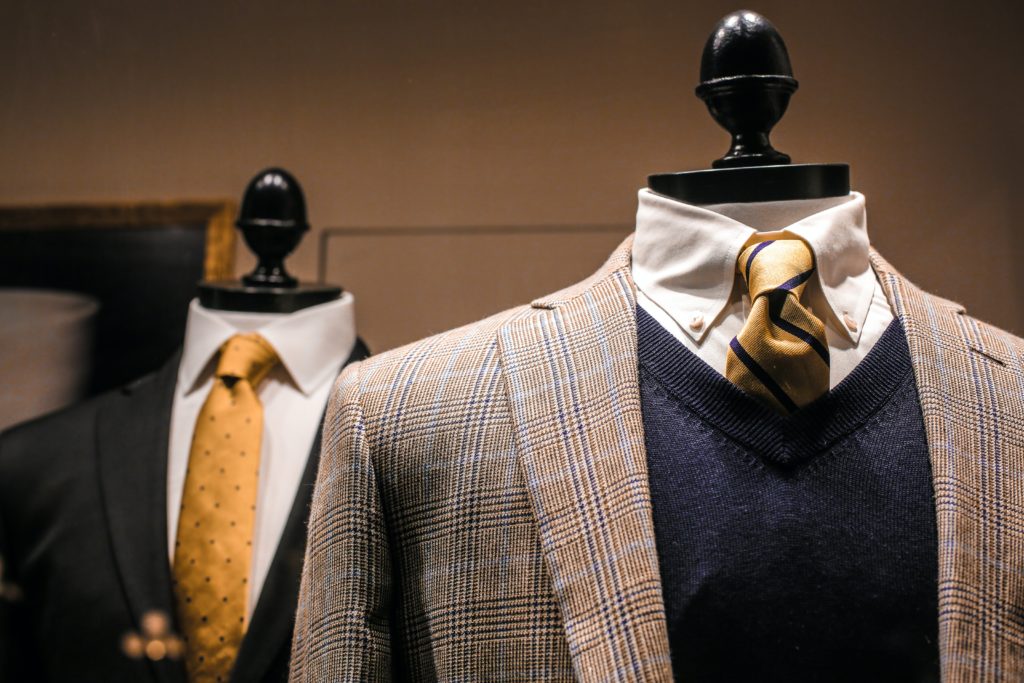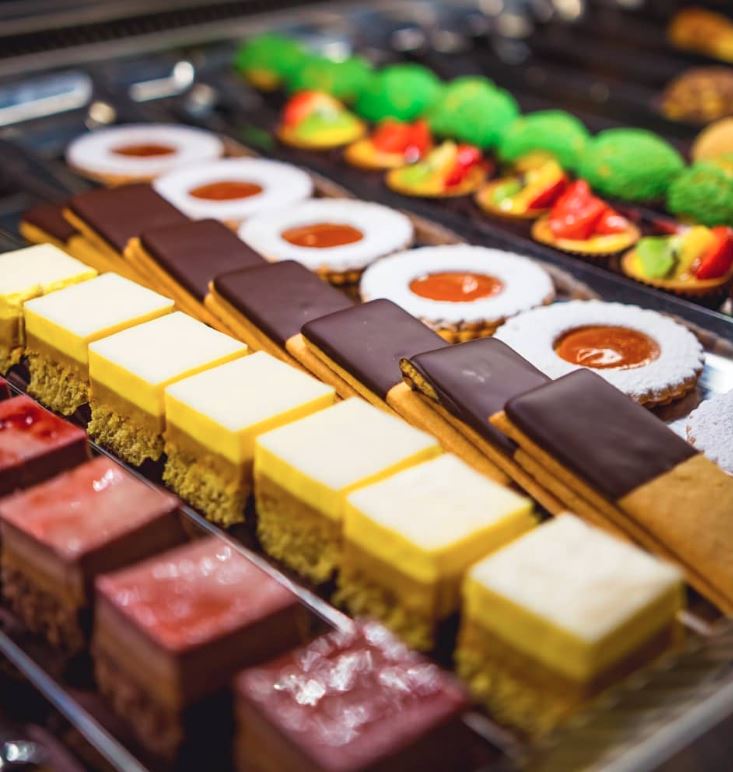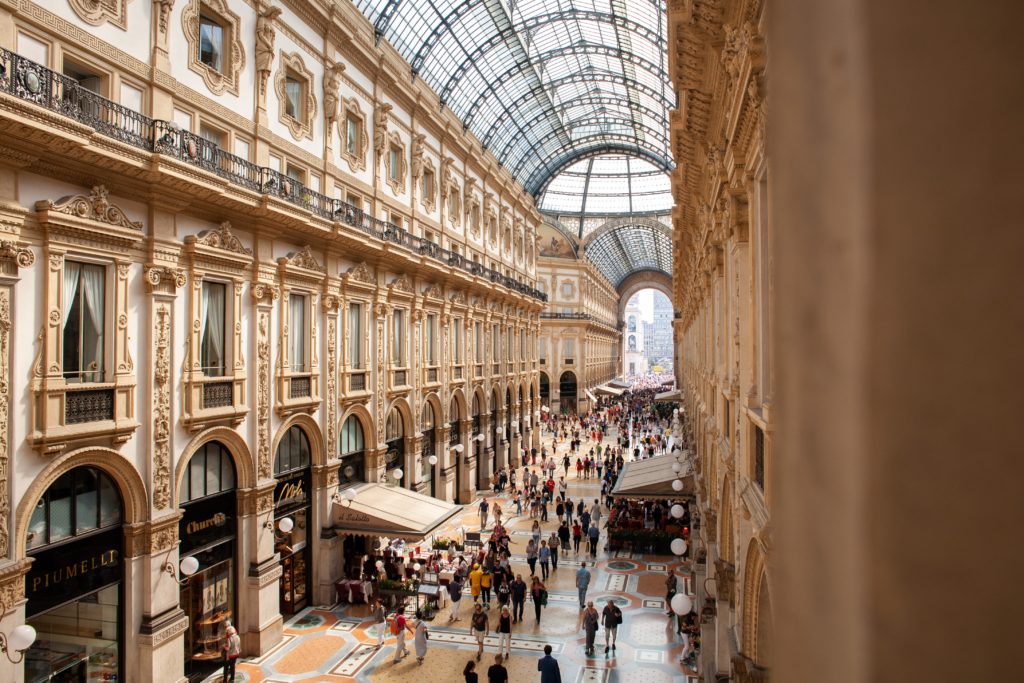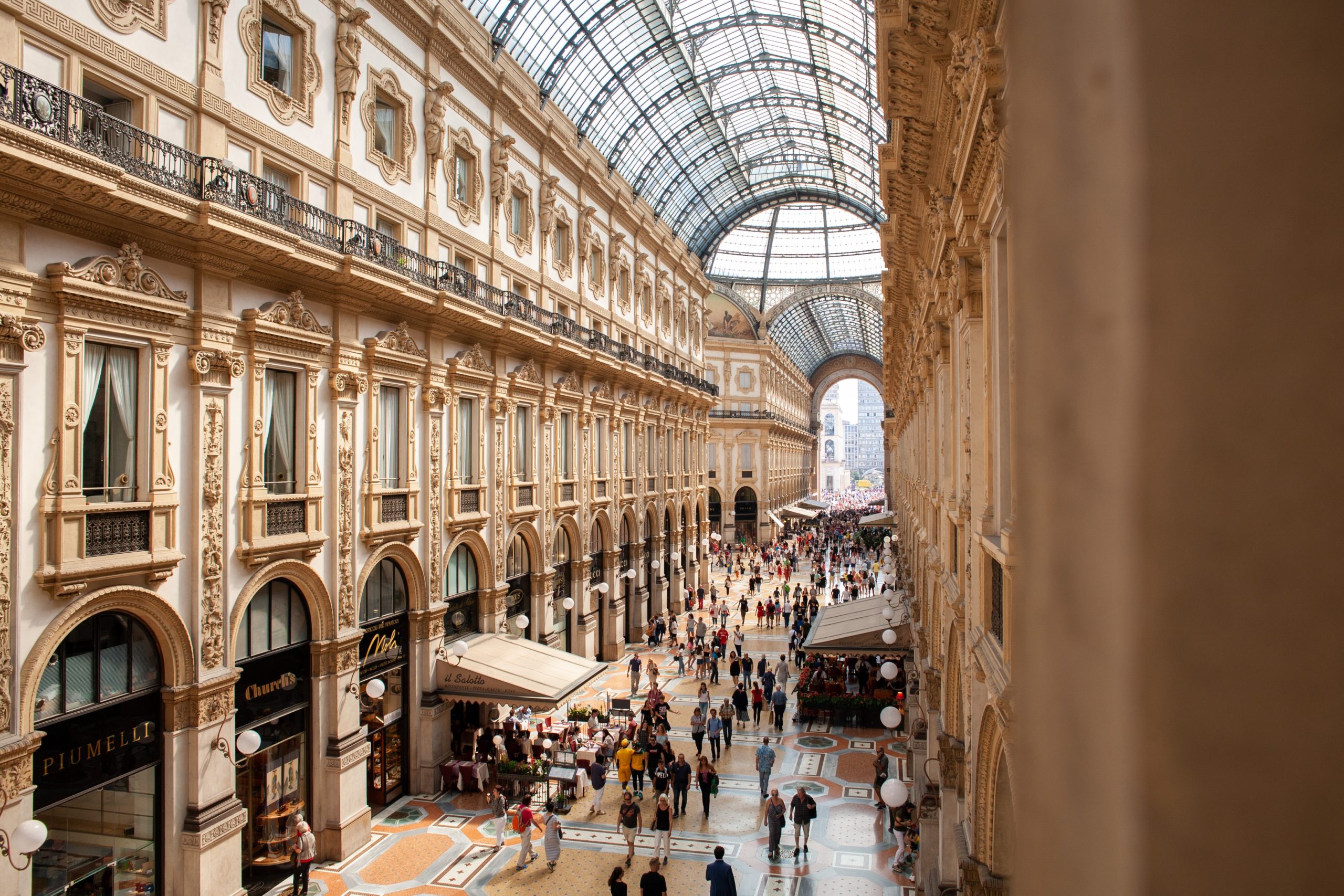Does fare bella figura simply mean to make a good impression? Well, for Italians their image and appearance are important and have a great relevance in making a good impression. Italians care about first impressions, the approval of society, and so the opinion of others.
I hear you ask “But who doesn’t?” Well, that is true, but perhaps the aesthetic aspect of life, in other words beauty and the appreciation of beauty, is particularly significant for the Italian culture.
Beauty, be it manmade or natural, is appreciated and celebrated by Italians in their everyday life. Perhaps, this is because beautiful architecture and natural beauty are ubiquitous in Italy and so this aesthetic sense inevitably encompasses everyday life. An example is the Italian style in fashion, which is renowned around the world, as dressing well is important to Italians.

Anche l’occhio vuole la sua parte
This is why Italians also use the expression: “anche l’occhio vuole la sua parte” literally: the eye wants/needs its share. It is possible to see this everywhere whenever something is presented as quality. For example, it is important that the food looks good and it is presented elegantly so that the experience of pleasure starts even before the tasting begins.
Another example is the experience of purchasing bread and pastries from a bakery. Let me start by saying that this is a daily occurrence for Italians, as bread has to be freshly baked each day to be worthy of the table. The bread mustn’t only taste delicious and smell divine but even its presentation and the appearance of the shop has to be pleasing. This is why many bakeries in Italy look a bit like jewellers. And if you buy ‘pasticcini’, the little bite size pastries, then they will be wrapped in beautiful paper tied with ribbons.
When quality is displayed the item also has to look good, has to be presented in a great way otherwise its quality is, in a way, compromised.

Fare bella figura
But I digress, let’s go back to fare bella figura. This means to give a good impression, to come across well. This can mean to come across in a competent way, or by displaying good manners, or by appearing well-groomed, well dressed. In other words fare bella figura is about showing oneself in the best possible light and this is based not only on one’s appearance but on one’s behaviour too. Therefore, although it is about appearance, it is also about substance as well.
Let me give you an example. Emma takes her foreign friends to Rome, she asks for advice upon finding the best restaurants. She wants to do well, she wants her foreign friends to have a good time in the restaurant she has chosen. Therefore, Emma vuole fare bella figura con gli amici stranieri.
The social element of the ‘bella figura’
While the direct translation in English of fare bella figura is to make a good impression, in fact, it’s actual meaning is: to do well and behave in a good way in a social situation and in so doing reflect well on yourself, your circle of people and your family.
Hence, it is also related to making someone else look good. For example, a parent who has educated their child well, a teacher who has taught a pupil well and so on. In this case we say: il ragazzo ha fatto fare una bella figura all’insegnante. The boy’s achievement reflects well on the teacher.

Related expression
Fare bella figura can be expressed in other way, for example: fare un figurone. This expression is used in the same way but its meaning is emphasised, it is better.
For example: La ragazza ha studiato il pezzo così bene che al concerto ha fatto un figurone. The girl has studied the piece so well that at the concert she did very well.
The opposite expression: Fare brutta figura
It might be even easier to understand the concept of bella figura by describing its opposite: fare brutta figura. This is similar to a gaffe, so a mistake in a social situation. So che figuraccia means what a gaffe!
Let’s give you some examples.
Luca is at a party, he drinks too much and he behaves inappropriately. His guests are embarrassed for him. Luca ha fatto una brutta figura.
Lea is talking to Ugo. She doesn’t know him very well. In speaking she talks badly about the mayor, only to find out that he is Ugo’s father. What a gaffe! Che brutta figura!
Related expressions to this one.
There are various expressions that have the same meaning.
For example: fare una figura barbina, fare una figuraccia and fare una gaffe are similar expressions, the first one is used in colloquial language and the other two in all situations.
There is another similar in meaning, but a warning here is due, as it is a rude and crude expression: fare una figura di merda.

In conclusion, as by now you’ll know, to really understand the Italian language it is important to reflect upon the culture and vice versa. I hope that this little blog has shed some light on those very common expressions.
As always, in order to learn and to be able to use these expressions, be sure to keep a note and the intention to use them in your next lesson or conversation club. You can join our conversation club anytime. We have some ongoing and some starting soon. Click here for dates and times.
Happy learning!
Laura







